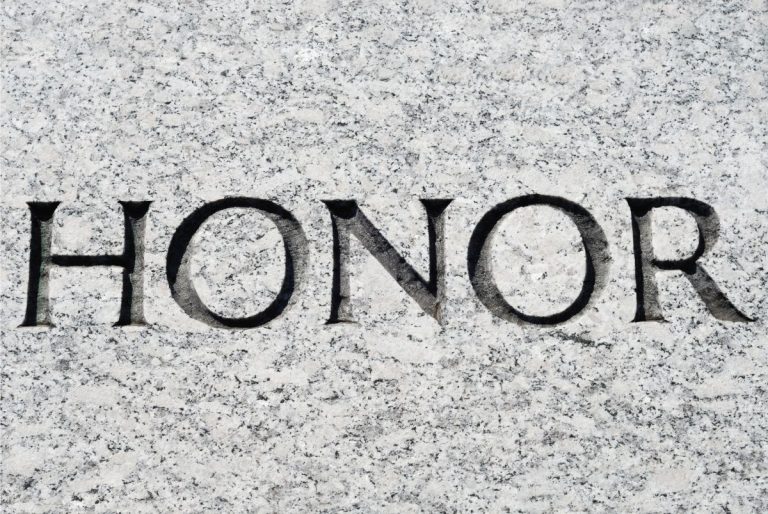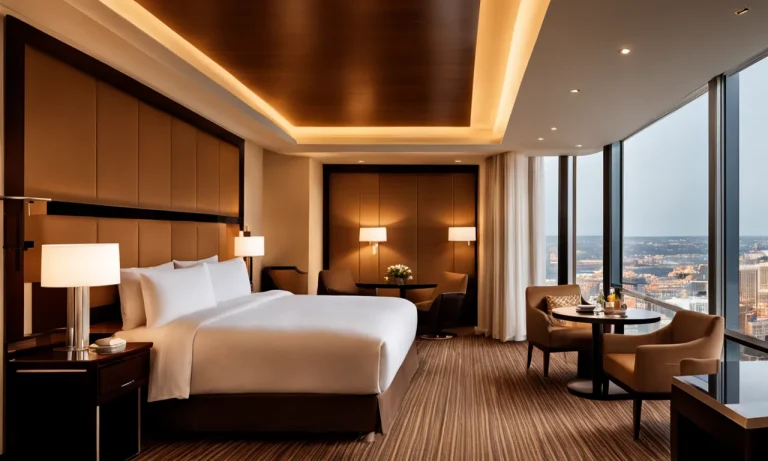Ever wondered how hotel staff can access any room with a single card? The technology behind these ‘master keys’ is more intriguing than you might think. It’s a crucial component of modern hotel security systems, ensuring guest safety while maintaining operational efficiency.
If you’re short on time, here’s a quick answer to your question:
Creating a master hotel key card, which can unlock any door within a hotel, is a task typically reserved for hotel management or security personnel due to security reasons.
Here’s a simplified explanation:
- Using the hotel’s key card encoding software and hardware, an authorized staff member selects the option to create a master key.
- The system then encodes a blank key card with the appropriate permissions that allow it to unlock all designated doors.
Please note, creating a master key should be done responsibly due to obvious security implications. Only designated and trusted hotel staff should have access to master keys. Any misuse of master keys can lead to serious privacy and security breaches.
In this article, we’ll dive deep into the process of creating a master hotel key card, the technology used, the security aspects, and its importance in the hospitality industry.
Understanding Key Cards and Their Technology
Key cards are an essential part of the hotel experience, providing guests with secure access to their rooms. These cards have revolutionized the hospitality industry, replacing traditional metal keys with a more convenient and efficient alternative. Understanding the technology behind key cards is crucial for hotel owners and guests alike.
Types of Hotel Key Cards
There are several types of key cards used in hotels today. The most common ones are magnetic stripe cards, RFID (Radio Frequency Identification) cards, and smart cards. Magnetic stripe cards are the traditional type, with a magnetic strip on the back that stores the necessary data for room access. RFID cards use radio waves to transmit information between the card and the reader, allowing for contactless access. Smart cards, on the other hand, have an embedded microchip that can store more data and provide additional functionalities.
Each type of key card has its advantages and disadvantages. Magnetic stripe cards are affordable and easy to use, but they are more susceptible to wear and tear. RFID cards offer convenience and durability, but they can be vulnerable to hacking if not properly secured. Smart cards are the most advanced and secure option, but they can also be more expensive to implement.
How Key Card Technology Works
The technology behind key cards is relatively straightforward. When a guest checks into a hotel, the front desk staff assigns them a key card that is programmed to access their specific room. The card contains encrypted data that is unique to the guest and the room. When the guest holds the key card against the card reader on the door, the reader decrypts the data and verifies its authenticity. If the information matches, the door unlocks, granting access to the guest.
Magnetic stripe cards work by swiping the card through a magnetic reader, which reads the data stored on the magnetic strip. RFID cards use radio waves to communicate with the card reader. The reader emits a signal, and the card responds with its unique identifier. Smart cards utilize the embedded microchip to store and transmit data securely.
It’s worth noting that key card technology has evolved over the years to enhance security and convenience. Nowadays, some hotels are even implementing mobile key solutions, allowing guests to use their smartphones as virtual key cards. This innovation eliminates the need for physical cards altogether, making the check-in and access process even more seamless.
How to Make a Master Hotel Key Card
Gaining Authorized Access
In order to make a master hotel key card, it is crucial to have authorized access to the key card system. This means that you must be a trusted employee or have permission from the hotel management. Gaining authorized access ensures that you are following proper protocols and legal requirements.
Using Key Card Encoding Software
Key card encoding software is used in hotels to create and manage electronic keys for rooms and other facilities. The software encodes details onto a blank key card, such as room number and duration of stay, which the guest then uses for access. This system enhances security and convenience by allowing easy control and monitoring of room and facility access. If a guest loses their card or it stops working, a new one can be quickly encoded using this software.
Programming a Master Key Card
After acquiring the necessary software, you can begin programming a master key card. This card will grant access to multiple rooms or areas within the hotel. To program a master key card, you will need to follow the instructions provided by the key card encoding software.
Typically, this involves entering specific access codes and assigning them to the master key card. It is essential to double-check the programming to ensure accuracy.
Testing the Master Key Card
Once the master key card is programmed, it is crucial to test its functionality. This involves attempting to access various rooms and areas within the hotel using the master key card.
By doing so, you can verify that the card is working correctly and granting the appropriate access. If any issues arise during testing, it is important to troubleshoot and reprogram the card if necessary.
Security Aspects of a Master Key Card
When it comes to hotel security, the master key card plays a crucial role. It grants access to multiple rooms and areas within the hotel, providing convenience for both guests and hotel staff. However, it is important to understand the security risks associated with master key cards and implement appropriate countermeasures to ensure the safety of guests and the integrity of the hotel’s security system.
Security Risks and Countermeasures
Master key cards, if fallen into the wrong hands, can pose a significant security threat. Unauthorized individuals may gain access to restricted areas, compromising the safety and privacy of guests. To mitigate this risk, hotels should implement robust security measures, such as:
- Encryption: Utilize encryption technology to protect the data stored on the master key card, making it difficult for unauthorized individuals to decode or clone the card.
- Physical Security: Safeguard the master key card by storing it in a secure location, such as a locked cabinet or safe, accessible only to authorized personnel.
- Access Logs: Maintain detailed logs of master key card usage to track access and detect any suspicious activity. Regularly review these logs to identify and address any anomalies.
- Restrict Access: Implement strict access control policies to limit the number of individuals with master key card privileges. Regularly review and update access rights to ensure only authorized personnel have such privileges.
Importance of Regular System Updates
To maintain the security of the master key card system, it is crucial to regularly update the software and firmware. Software updates often include security patches that address vulnerabilities and enhance the overall system’s resilience against potential attacks. Hotels should work closely with the system provider to ensure they are aware of any updates and promptly apply them.
Regular updates also help in staying ahead of emerging security threats. As technology advances, hackers and criminals continuously develop new techniques to circumvent security measures. By staying current with system updates, hotels can better protect their guests and maintain a secure environment.
Employee Training and Access Control
Proper training of hotel staff is essential to ensure the security of the master key card system. Employees should be educated on the importance of safeguarding the master key card, recognizing potential security risks, and following established protocols.
Access control is another critical aspect of master key card security. Each employee should be assigned access rights based on their job responsibilities, limiting their access to only the areas necessary for their tasks. Regularly review and update access permissions as employees change roles or leave the organization.
By implementing robust security measures, regularly updating the system, and providing comprehensive training to employees, hotels can ensure the security of their master key card system and protect the safety and privacy of their guests.
Role of Master Key Cards in the Hospitality Industry
Master key cards play a crucial role in the smooth operation of hotels and other accommodations. These specially programmed cards provide numerous benefits, including operational efficiency, guest convenience, and emergency situations. Let’s explore each of these benefits in detail.
Operational Efficiency
One of the primary advantages of using master key cards in the hospitality industry is the significant improvement in operational efficiency. Instead of carrying a bulky set of keys, hotel staff can access multiple rooms and facilities with just one master key card. This streamlines the check-in process, reduces the risk of lost or misplaced keys, and allows for better coordination among hotel staff.
With the use of master key cards, hotel management can easily control and monitor access to various areas within the property. This ensures that only authorized personnel can enter restricted areas, such as storage rooms or maintenance areas. Additionally, the centralized access control system allows for quick and easy updates, such as adding or revoking access privileges, without the need to replace physical keys.
Guest Convenience
Master key cards also enhance the overall experience of hotel guests by providing convenience and flexibility. Guests no longer need to carry multiple keys for their room, gym, spa, or other facilities. Instead, they can simply use their master key card to access all the areas they are entitled to during their stay.
Moreover, master key cards can be programmed to provide additional features, such as room charge capabilities or personalized access restrictions. This means that guests can use their key card to make purchases within the hotel, such as meals or spa services, without the hassle of carrying cash or credit cards.
Emergency Situations
In emergency situations, master key cards can be a lifesaver. In the event of a fire or other evacuation scenarios, hotel staff can use their master key cards to quickly unlock all guest rooms and ensure a swift evacuation. This saves valuable time compared to searching for individual keys, potentially preventing injuries or even fatalities.
Furthermore, master key cards can be easily deactivated or reprogrammed in case of lost or stolen cards. This prevents unauthorized access to guest rooms and ensures the safety and security of both guests and their belongings.
Conclusion
From gaining authorized access to programming the card using specific software, making a master hotel key card is a process that intertwines technology, security, and efficiency. As we’ve learned, these master keys play a significant role in the hospitality industry – offering convenience, ensuring security, and boosting operational efficiency.
However, along with the advantages, the potential risks cannot be ignored. Thus, robust countermeasures and regular system updates are pivotal. Moreover, employee training and strict access control further add to the efficacy of these cards. As technology continues to evolve, we can expect even more secure and efficient key systems in the future, maintaining the fine balance between guest convenience and hotel security.






